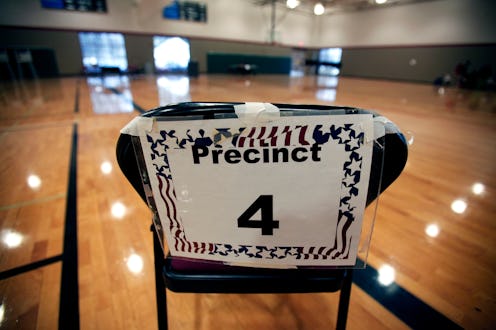News
How The Delegates Are Awarded In Illinois
March 15 marks an important date for the presidential primaries — 1,159 delegates are up for grabs, the largest total since Super Tuesday. One of the most delegate-rich states voting on the 15th will be Illinois, which is important ground particularly for the GOP. There will be 69 delegates at stake there for the remaining Republican candidates, and 182 among Democratic candidates Hillary Clinton and Bernie Sanders. The Illinois primary works under a two-pronged system, which takes a winner-take-all method and divvies it up until it becomes a winner-take-most primary.
This type of primary falls under a new set of rules for the GOP which have been key in helping Donald Trump move closer and closer to the nomination. In the case of Illinois, there will be a state-wide pick for the Republican nomination, and that pick will receive 15 of the 69 available delegates. The remaining 54 delegates are allotted through congressional districts choosing individual candidates based on each district's preference. More simply put, if a district aligns with, for example, Marco Rubio, that district is able to give their share of delegates to him.
As of one week before the primary, Trump holds the state, with a 10-point lead over candidate Ted Cruz. But given the state's rules, this does not necessarily mean that Trump will receive more than 15 delegates in Illinois at all. Though Trump's support is reaching the suburbs of Chicago, Cruz, Rubio, and John Kasich are all vying to overtake him through the state-wide and congressional district elections.
Everyone but Rubio (who is sticking to his home state of Florida) has hit the campaign trail hard in Illinois leading up to the Tuesday primary. Kasich held two town halls in Chicago in an effort to soften the blow from a disappointing finish in the South, hoping that neighboring Ohio will give him an edge. Cruz also held a fundraiser in the state, while Trump spoke to voters at a rally.
The contest for the Democratic Party is slightly less weighted, with Clinton projected to win by a 42-point margin. She currently polls at 67 percent to Sanders' 25. Of the 182 Illinois delegates, 102 will be awarded based on a proportional vote. With this large number of delegates up for grabs, Tuesday's primaries are going to be a make-or-break-it moment for several of the candidates. But for those looking to beat Trump's state-wide popularity and move forward to the nomination, Illinois may be an important strategic key.
